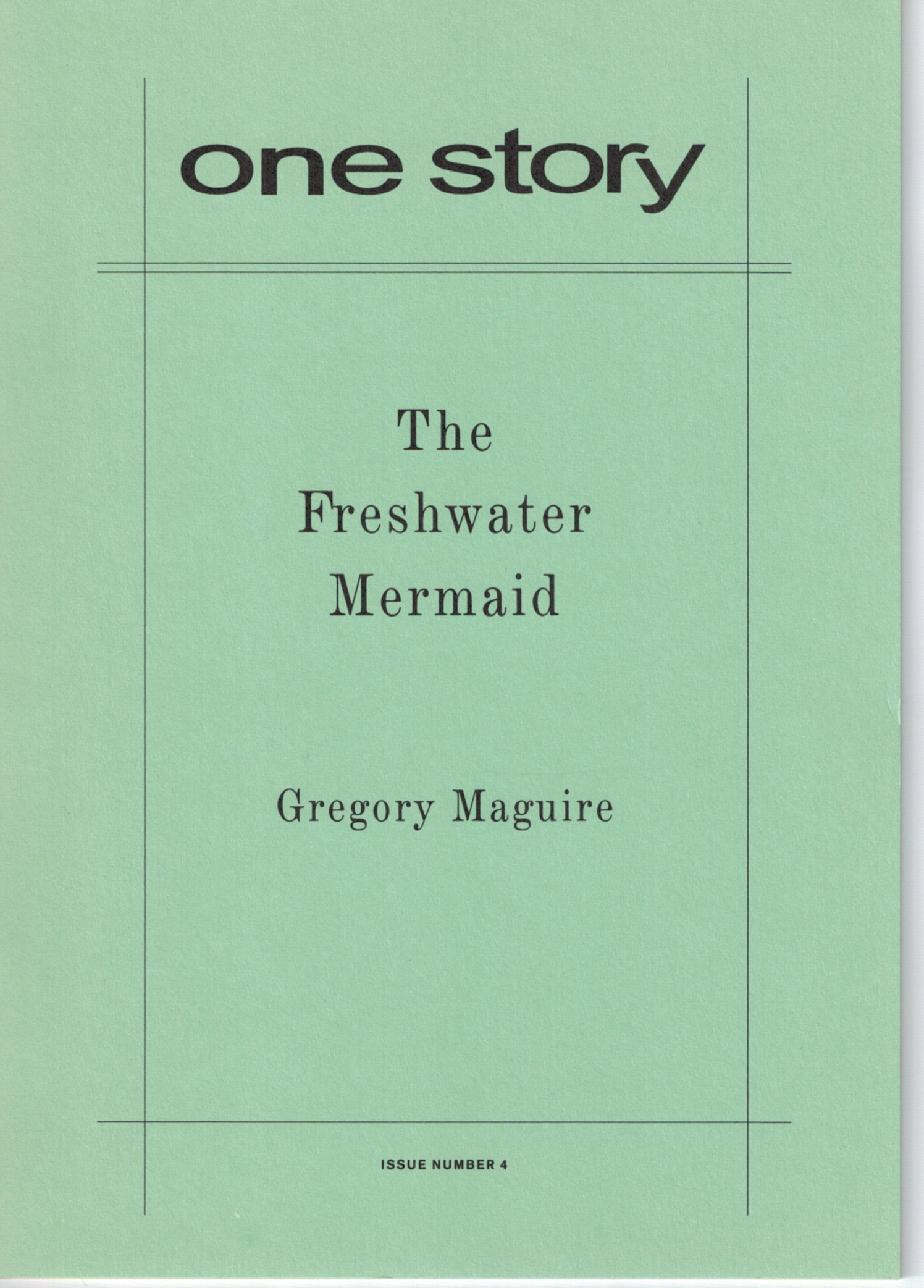
The Freshwater Mermaid
Sold out
Excerpt
As her plane from Seattle made its approach to Denver International Airport Carter-Ann Bartlett saw the explosion that killed her parents. The sky was clear and the noontime light made of the airport an architectural model surrounded by candy planes on plastic runways. The flight plan of the DC-10 followed a route running parallel and then south of the airport, banking twice to position for a landing on a north-heading runway.
Gregory Maguire
Gregory Maguire is the author of Wicked, Confessions of an Ugly Stepsister, and Lost, as well as a dozen novels for children.
Q&A by Hannah Tinti
- HT: Where did the idea for this story come from?
- GM: The title came first—I was at Blue Mountain Center in the Adirondacks, escorting some English friends around Eagle Lake (showing off our American wilderness to writers whose sensibilities were trained keenly by the Lake District). The conversation turned to differences between English and American uses of nature in the generation of fantastic literature, and Jill Paton Walsh, to make a point, indicated a particularly beautiful stretch of pine-toothed shoreline and said, “There ought, for instance, to be such a thing as a freshwater mermaid.” On the spot I asked for permission to use the term, and, good friend she, was granted it.
- HT: What was the most challenging aspect of writing this story?
- GM: I didn’t conceive of a use for that title or notion of a freshwater mermaid until a year or two later when I was asked to produce a short work for an anthology of stories that in one way or another were intended to include references to reading or other books within them. I remembered an episode in my life involving a dead goldfish, a surviving goldfish, and ONE HUNDRED YEARS OF SOLITUDE, and plucked that vignette wholesale from memory, intending that to be a capstone in a little comic piece. But the first paragraph of the story came out hugely grim—an unexpected development—and then modulating the tone so that the comic bit could still work was, perhaps, the trickiest maneuver in the storywriting.
- HT: Was Can you tell us a little about the title/Where did the idea for this story come fromWhere did the idea for this story come from an influence?
- GM: THE FRESHWATER MERMAID was written before 9/11. But when the anthologists considered the story too severe for a teenage audience, I placed the story in the file, and pulled it out after 9/11 for submission to One Story.
- HT: Why do you think the process of mourning remains such a mystery?
- GM: The conventional images of the psyche as a wellspring of unplumable depths is, I think, a healthy and correct one. I centered my story at a school near a lake, and the lake stands in, I hope not too obviously, for the vastness and unknowableness of the pysche of a survivor. But in every light, in every day, in every season, there are new glints of character on the surface of that lake, new currents from underwater springs, new clouds of debris obscuring the background. As humans we can only bear to live on the surface of such mystery—we would drown below the surface—but we also cannot move too far away from the shore of what we don’t know. How’s that for the overextension of a metaphor?
- HT: When did you come up with the image of the Freshwater Mermaid?
- GM: As mentioned above. But I finally came to write the story several years later while an artist in residence at the same haven in the Adirondacks, Blue Mountain Center.
- HT: Do you find it difficult to switch between the novel and the short story?
- GM: I have ideas for novels three times a day. I have ideas for short stories only when I’m asked—I respond to the assignment.
- HT: How long did it take you to complete this story?
- GM: I wrote the first draft in a day. I write by hand, slowly and cleanly, and like the look of handwriting on paper; the story isn’t substantially changed from that first effort.
- HT: What is the best bit of advice about writing you have ever received?
- GM: All the various bits and pieces of advice I’ve ever heard have all meant something, but most of them deteriorate, become part of the atmosphere. I do remember someone once giving me a list of aphorisms and suggestions about how to proceed, which ended with (was it Henry James?) the shrugging conclusion, “Ah, well, one must do it as one can.” And that is both forgiving and challenging to consider.
- HT: What are you working on now?
- GM: In addition to helping the newest member of our family (adopted from Guatemala) feel at home, I’m busy trying to complete the first draft of my fourth novel for adults, and the second draft of my fourteenth novel for young people.